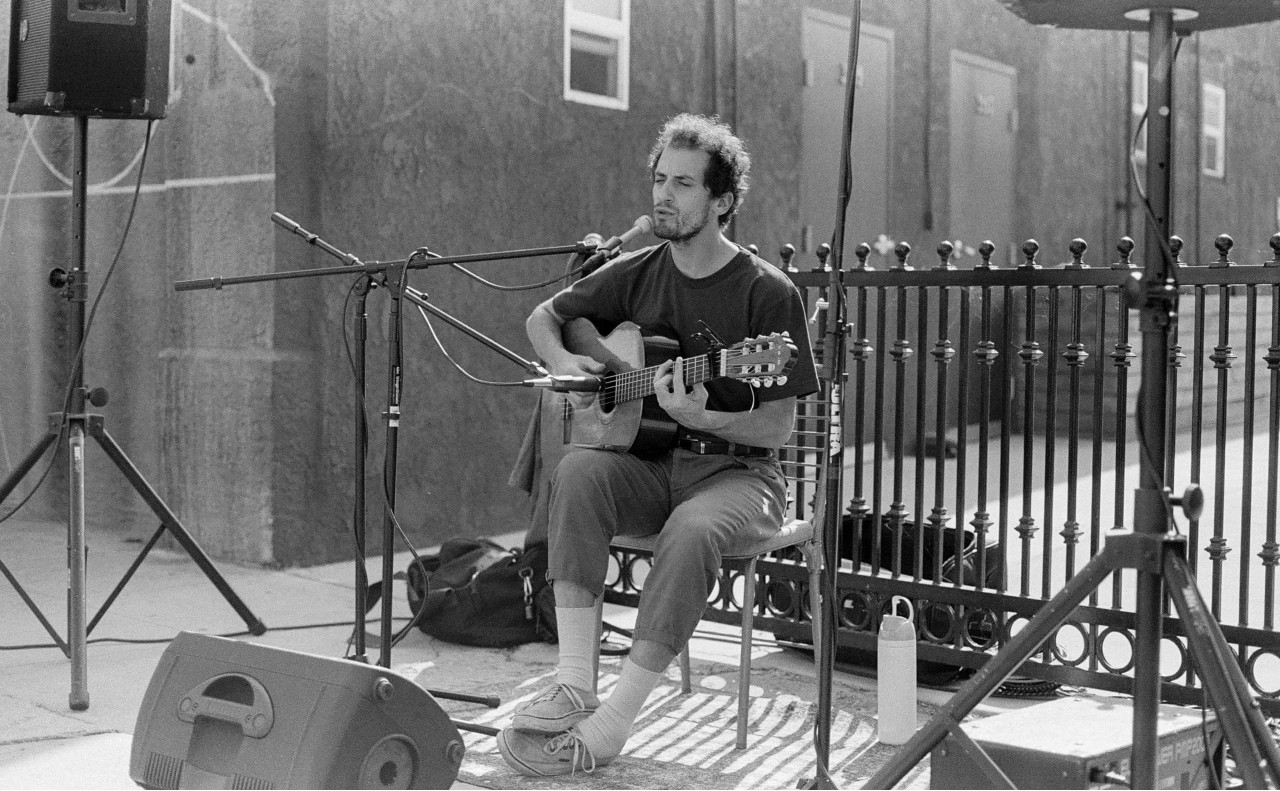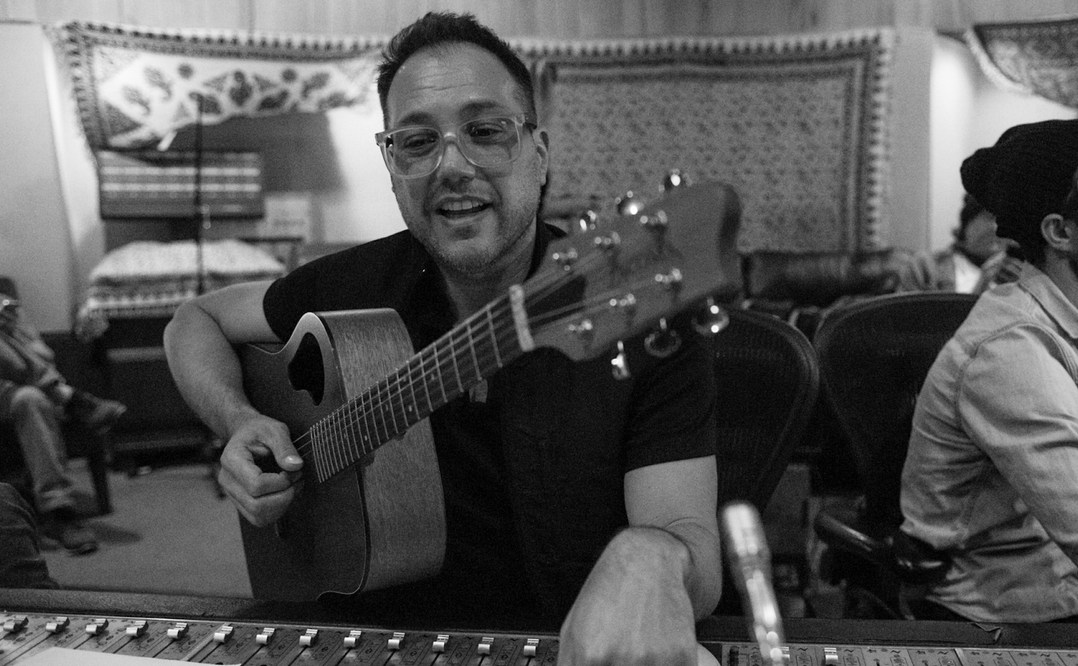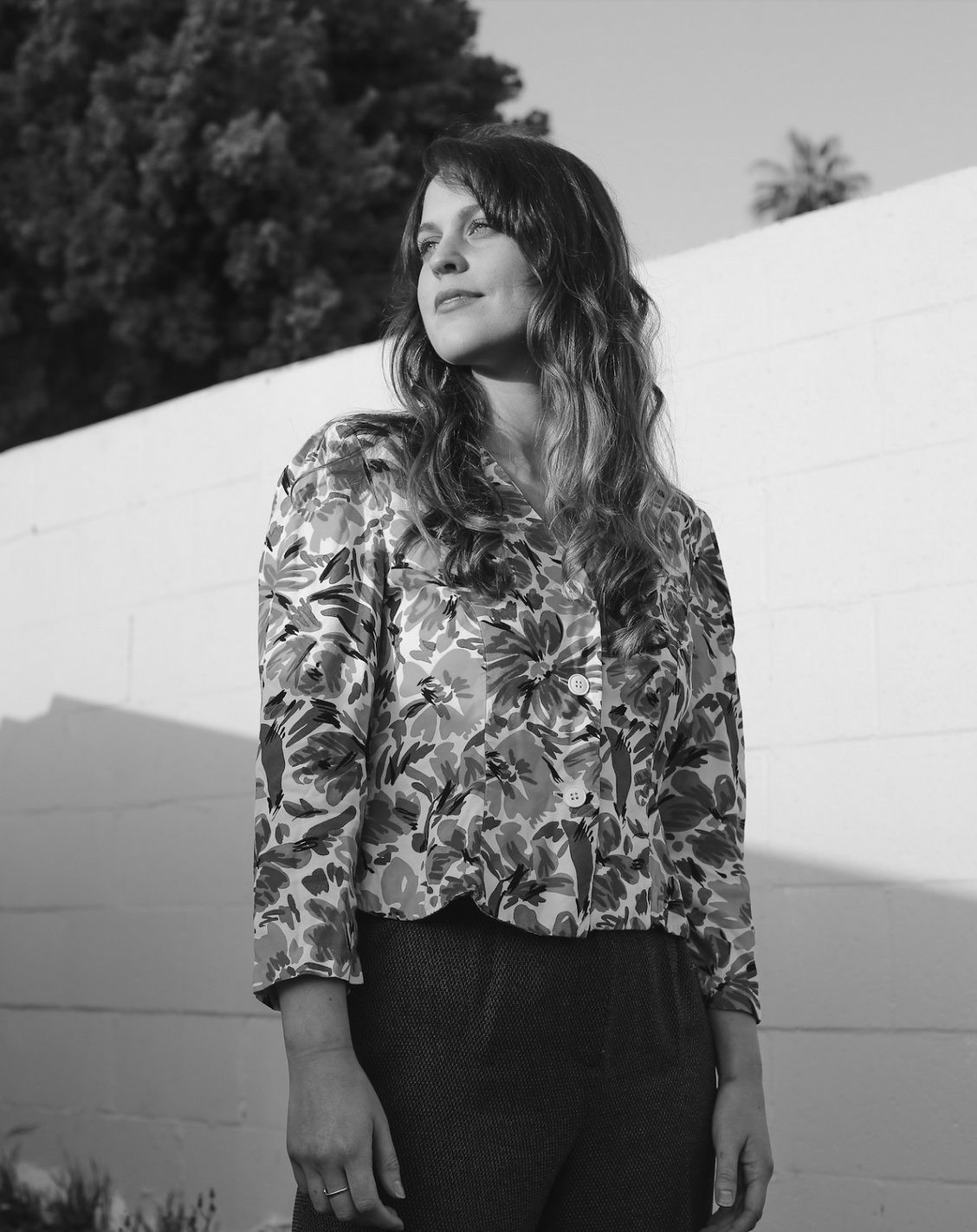
■ Features
Charlie Weinmann chats with 4 Los Angeles musicians about the risks and rewards of asking for creative feedback.
For musicians across the globe, there are countless methods for finishing a track or project. One’s creative process is objective and will constantly evolve. However, most artists are unanimous when it come to the importance of seeking constructive, honest and genuine feedback. And, on the other hand, providing it to peers.
Getting feedback on music can be tough to say the least. It can be scary or embarrassing to ask someone what they think, but depending on how you approach it, the results may be just what's needed to reach new levels of refinement.
I caught up with 4 creative artists in Los Angeles who shared their unique approaches to seeking and giving music feedback. Their perspectives provide context for how we might approach feedback in our own musical endeavours.

Jacob Peter moved to Los Angeles in 2018 and has since pursued a life as an independent songwriter and creative. In September of 2020, Jacob made a commitment with his friend and fellow songwriter Derick Evans who lives in Buffalo, NY - Each week for 20 weeks they would meet on Zoom to share and discuss demos they had created the previous week. The goal was to choose 10 of those song ideas and turn them into a finished album.
The two friends remained unwavering in their commitment to finish a demo each week, and after 20 weeks went by, they continued to meet weekly to discuss the development of their chosen 10 tracks. Both artists are now armed with 10 tracks that will be released sometime in early 2022.
Jacob puts the success of the partnership down to "a sense of obligation to each other" which he warns can be harder to foster in larger groups:
“I’ve tried this in the past with larger groups and people would end up dropping out. But with just one other person, I felt more of a kinship and responsibility to follow up with them each week.
We kept each other honest. There were weeks when we’d text each other saying ‘I don’t think I can make a demo this week,’ but we’d push each other to get it done anyway.”
Jacob believes that if you can find a trusted and respected peer to assist you in providing feedback, you’re more likely to stay on top of your game and on schedule:
“We were comfortable enough to break down every aspect of each song. We discussed lyrics, forms, sounds, but also made sure to ask each other about the musical intentions. We were careful not to judge the music based on what we might want to hear ourselves.”

Alec Kwo is a keyboardist and producer living in Los Angeles who has benefitted from seeking mentors throughout his creative journey. “Receiving feedback can be encouraging and motivational,” says Alec. And of course, along with feedback comes advice:
“One of the best pieces of advice I’ve gotten from a mentor is: ‘the most honest thing you can do as a musician is be where you’re at - don’t think about what you should be doing or what you need to be able to do.’”
Alec has chosen mentors based on a combination of the artist’s background and what they’re currently creating:
“It’s the music my mentors choose to make at any given time that is interesting to me. I want to be able to make music like them, but also with respect to the musicianship of the greats before us."
Giving feedback can be just as useful as receiving it - something Alec has experience with as well, having been a mentor for youth songwriting workshops. He points out that just because his mentors are typically more advanced, that doesn’t mean he can’t give the same kind of advice to someone who asks him for it. “You just have to believe in what you’re saying,” he says.
Alec also points out the value of sharing words of appreciation for musicians - he believes that knowing how to compliment a music artist can be as valuable as pointing out weaknesses:
“Encourage people to dig deeper and to take risks, and point out things that they’re doing well that they might not know they are doing well.”

Nomad is a session musician, producer and composer who has been working in the industry for the last 20 years. His credits include guitar parts in movies such as 'Mr. & Mrs. Smith', 'Happy Feet 2' and 'Men In Black 3'. Today, he does a large portion of his work from his home studio in Burbank, CA and is working on releasing an educational video series for the aspiring ‘Career Musician’ which is the name of his self-founded organization/platform.
Needless to say, Nomad has ample experience when it comes to song critique examples. Over the years he's learnt how to give feedback to singers, instrumentalists and writers. First and foremost, he says it’s imperative to set parameters for feedback:
“How do you want me to give you feedback? As your friend or as an A&R person? In athletics, the person with the best stats gets the most awards, but music is not that cut and dry.
No one human being can determine such stats for creating art. Who’s to say that a Warhol is better than a Picasso, or a Picasso is better than a Rembrandt? No one. Comparing yourself to another artist is like comparing apples and door knobs.
In order to give good feedback, the parameters must be pre-determined and clearly stated.”
In terms of providing specific song feedback for songwriters, Nomad had this to share about his personal approach:
“A song is a song. A good song in my opinion, is one you should just be able to sing or hum, and people go ‘oh that’s catchy.’ If it’s good to you, and you’re really excited about it, chances are it’ll be exciting to someone else as well.”
Nomad reminds us that when we ask for feedback, we should take into account the track's function. One question he’ll typically ask someone who is asking him for advice is: “What’s the purpose of you writing this song?”
He believes that if you’re writing a song simply for self-expression, “nothing else matters in that case.” Whereas, “if you’re writing a song for a brief, then that’s the parameter you will have to adhere to." While Nomad acknowledges that this approach may seem "methodical", he says that "you have to be upfront about your intentions.”

Gretchen Klempa is a songwriter and multi-instrumentalist who moved to Los Angeles in 2019 from the greater Boston area. Over the pandemic she started her own virtual songwriting workshop that met once a week over Zoom:
“I noticed that when you’re held accountable within a safe space, it’s easier to uncover authenticity and to be more brave and less precious.
In a group workshop, you have a group of people who are surrounding each other, working towards the same goal. What you have to share each week may not be a masterpiece, but it’s about recognizing the fact that you got there. You made the effort and that’s where it starts.”
Gretchen says that the key to songwriting is to be authentic and to make it a practice. The workshop helps to bring everyone involved to the same level of vulnerability:
“The workshops are never like ‘this is how you write a song,’ it’s more of a tool to help people find and unlock their potential and to develop healthy habits for creating.”
Gretchen’s workshops consisted of between 5 and 20 participants who would all join a Zoom call and play their latest demo to the group. “Everyone has something to say,” says Gretchen, before continuing:
“Anyone can write a song. [In the group,] people would chime in and share their opinions, and it was cool to see people react in surprising ways. The reaction is often ‘maybe I do have something here…’”
Seeking feedback as a creative can be scary and intimidating, but hopefully after reading through these examples of artists who are very much making their way as creatives in one of the most competitive cities on Earth, you can feel inspired to put your work out there.
Don't let your first round of feedback be a song review, reach out to that person you’ve been meaning to ask for advice and open yourself up to various opinions every step of the way. Remember that anyone you ask for feedback will likely be flattered and willing to help however they can. Often our insecurities are the only thing holding us back.
Finally, don't be afraid to give feedback as well as take it. While all of the methods above deal primarily with songwriting feedback, the process is the same whether you're giving feedback on a mix, specific guitar feedback or providing music video feedback. Always remember that as a musician yourself, you're more than qualified to review a song.
For more music industry tips, tricks and advice, or to access up-to-date music industry news, head to the Pirate.com Blog.
To hone your skills as a podcaster, band, producer or DJ, book a Pirate.com studio in the UK, US or Germany.
